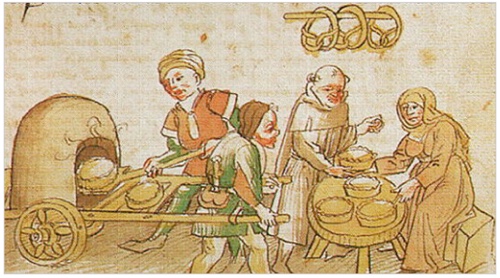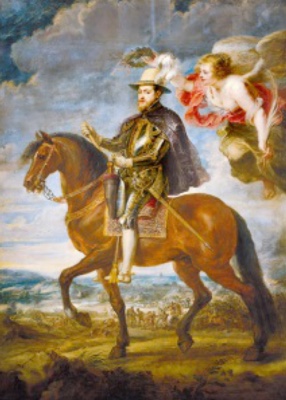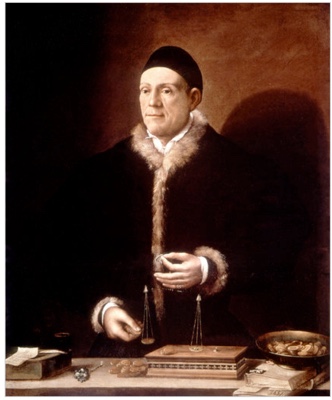NYT History Book Reviews: Who Got Noticed this Week?

(Source: JoePastry.com)
HNN readers: Here's a slice of history pie.

(Ishida Hisashi / Courtesy of Nagasaki Atomic Bomb Museum)
Book: Nagasaki: Life After Nuclear War
Publisher's
Summary (Via Amazon):
"On August 9, 1945, three days after the atomic bombing of
Hiroshima, the United States dropped a second atomic bomb on
Nagasaki, a small port city on Japan’s southernmost island. An
estimated 74,000 people died within the first five months, and
another 75,000 were injured.
"Published on the seventieth
anniversary of the bombing, Nagasaki
takes readers from the morning of the bombing to the city today,
telling the first-hand
experiences of five survivors, all of whom were teenagers at the
time of the devastation. Susan Southard has spent years interviewing
hibakusha
(“bomb-affected people”) and researching the physical, emotional,
and social challenges of post-atomic life. She weaves together
dramatic eyewitness accounts with searing analysis of the policies of
censorship and denial that colored much of what was reported about
the bombing both in the United States and Japan."
Author: Susan Southard, founder and artistic director of Essential Theatre.
Reviewer: Ian Buruma teaches at Bard College. His latest book is Theater of Cruelty: Art, Film, and the Shadows of War.
Review Highlights
"The strength of Southard’s book is that her account is remarkably free of abstractions."
Comments: ‘Japan outraged after Chinese paper publishes map with nuclear bomb mushroom clouds over Hiroshima and Nagasaki.’

(Source: NYT Book Review)
Book: Out of Ashes
Publisher's Summary (Via Amazon): "Konrad Jarausch describes how the European nations emerged from the nineteenth century with high hopes for continued material progress and proud of their imperial command over the globe, only to become embroiled in the bloodshed of World War I, which brought an end to their optimism and gave rise to competing democratic, communist, and fascist ideologies. He shows how the 1920s witnessed renewed hope and a flourishing of modernist art and literature, but how the decade ended in economic collapse and gave rise to a second, more devastating world war and genocide on an unprecedented scale. Jarausch further explores how Western Europe surprisingly recovered due to American help and political integration. Finally, he examines how the Cold War pushed the divided continent to the brink of nuclear annihilation, and how the unforeseen triumph of liberal capitalism came to be threatened by Islamic fundamentalism, global economic crisis, and an uncertain future."
Author: Konrad H. Jarausch
Reviewer: Geoffrey Wheatcroft is the author of The Controversy of Zion, The Strange Death of Tory England and Yo, Blair!
Review Highlights: "One thing Jarausch can provide in his own telling is an unusual personal perspective. German by origin, born in Magdeburg during a war in which his father was killed on the Russian front, he belongs, as he too truly says, to the last generation with a traditional Gymnasium education, instructed in Greek and Latin as well as modern languages.
“Out of Ashes” doesn’t pretend to any overarching explanation, or to be a work of original scholarship. A narrative based on very wide reading in several languages, it might be called an old- fashioned book by an old-fashioned historian, which are not words of dispraise in this reviewer’s vocabulary.
"When he writes that the German Jews’ “ostentatious accumulation of wealth spurred widespread envy,” he doubtless doesn’t mean it to sound as it might to some ears, but to say that “it was the compliance of most victims that made the Final Solution possible” is a little worse than clumsy. What made it possible, alas, was the passive or active compliance of the Germans who carried out the great murder."
Comments: Ashes to ashes... dust to dust. The European Union may go bust.

(Source: NYT Book Review)
Book: World Without End: Spain, Philip II, and the First Global Empire
Publisher's
Summary (Via Amazon):
"The legacy of imperial Spain was shaped by many hands. But the
dramatic human story of the extraordinary projection of Spanish might
in the second half of the sixteenth century has never been fully
told—until now. In World
Without End,
Hugh Thomas chronicles the lives, loves, conflicts, and conquests of
the complex men and women who carved up the Americas for the glory of
Spain.
"Chief among them is the towering figure of King
Philip II, the cultivated Spanish monarch whom a contemporary once
called “the arbiter of the world.” Cheerful and pious, he
inherited vast authority from his father, Emperor Charles V, but
nevertheless felt himself unworthy to wield it. His forty-two-year
reign changed the face of the globe forever. Alongside Philip we find
the entitled descendants of New Spain’s original explorers—men
who, like their king, came into possession of land they never
conquered and wielded supremacy they never sought. Here too are the
Roman Catholic religious leaders of the Americas, whose internecine
struggles created possibilities that the emerging Jesuit order was
well-positioned to fill."
Author: Hugh Thomas
Reviewer: Nigel Cliff is the author, most recently, of The Last Crusade: The Epic Voyages of Vasco da Gama. His new translation of Marco Polo’s “Travels” will be published this December.
Review highlights: “Thomas has steeped himself in the sources, and general readers will not find a more reliable guide to the maturing Spanish Empire. But his enthusiasm for trying to fit everything in makes for a discursive narrative that loops and bounces back and forth without much regard for chronology.
“Thomas, who at 84 sits in the British House of Lords as Baron Thomas of Swynnerton, writes old-fashioned history that does not shy away from unfashionable views. He puzzles that no one nowadays makes use of the elaborate terminology for degrees of nonwhiteness: quadroons and octoroons, mestizos and zambos and the rest.
“World Without End” reminds us that the far-flung Spanish Empire was the work of many minds and hands, and by the end their myriad stories carry a cumulative charge.”
Comments: Philip II once said "the first thing you must realize is that the community was not created for the prince but rather that the prince was created for the sake of the community." Sounds similar to “Ask not what your country can do for you, but what you can do for your country”!

(Source: NYT Book Review)
Book: The Richest Man Who Ever Lived
Publisher's
Summary (Via Amazon):
"The life and times of the wealthiest man who ever lived—Jacob
Fugger—the Renaissance banker who revolutionized the art of making
money and established the radical idea of pursuing wealth for its own
sake.
"Jacob Fugger lived in Germany at the turn of the
sixteenth century, the grandson of a peasant. By the time he died,
his fortune amounted to nearly two percent of European GDP. Not even
John D. Rockefeller had that kind of wealth.
"Most people become rich by spotting opportunities,
pioneering new technologies, or besting opponents in negotiations.
Fugger did all that, but he had an extra quality that allowed him to
rise even higher: nerve. In an era when kings had unlimited power,
Fugger had the nerve to stare down heads of state and ask them to pay
back their loans—with interest. It was this coolness and
self-assurance, along with his inexhaustible ambition, that made him
not only the richest man ever, but a force of history as well. Before
Fugger came along it was illegal under church law to charge interest
on loans, but he got the Pope to change that. He also helped trigger
the Reformation and likely funded Magellan’s circumnavigation of
the globe. His creation of a news service, which gave him an
information edge over his rivalsand
customers, earned Fugger a footnote in the history of journalism. And
he took Austria’s Habsburg family from being second-tier sovereigns
to rulers of the first empire where the sun never set."
Author: Greg Steinmetz, a journalist turned securities analyst.
Reviewer: Jerry Z. Muller is the author of The Mind and the Market: Capitalism in Western Thought and Capitalism and the Jews.
Review highlights: "Though it doesn’t quite live up to its promise, it provides a serviceable and colorful introduction to one of the most influential businessmen in history.
"Steinmetz claims that 'to understand our financial system and how we got it, it pays to understand' Fugger. Not really."
"Unfortunately, Steinmetz sacrifices analysis to a relentless stream of stories, colorful facts, exaggerated claims and dubious historical analogies. The book seems designed more to entertain than to enlighten."
Comments: If you asked Fugger to put his money where his mouth is, you'd probably have a bad day on your hands. Apparently, he also loved work as much as Warren Buffet does.
For Fun: 6 Famous Things From History That Didn’t Actually Exist